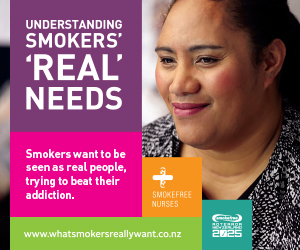CLINICALLY APPRAISED TOPIC (CAT): Can omega-3 fish oil help reduce irregular heart rhythms?
CLINICAL BOTTOM LINE:
Treatment with omega-3 fish oils did not reduce recurrent atrial fibrillation (AF) over six months in adults with paroxysmal or persistent atrial fibrillation.
CLINICAL SCENARIO:
You are a district nurse visiting an elderly patient. He has a history of persistent atrial fibrillation (AF) and asks for your opinion of omega-3 fish oils. You are aware claims are made for supplements, but don’t know what the evidence is. You promise to look it up in time for your next visit.
QUESTION:
Does taking omega-3 fish oil prevent the recurrence of atrial fibrillation among adult patients?
SEARCH STRATEGY:
PubMed-Clinical queries (therapy/broad): (Omega 3 fatty acids) AND (atrial fibrillation). Limits: humans, English, randomised controlled trial.
CITATION:
Kowey P R, Reiffel J A, Ellenbogen K A, et al. Efficacy and safety of prescription omega-3 fatty acids for the prevention of recurrent symptomatic atrial fibrillation: a randomized controlled trial. JAMA 2010; 304:2363-72.
STUDY SUMMARY:
A randomised, double blind, placebo-controlled, parallel-group trial conducted in 96 centres in the United States. Recruited 663 outpatient participants with confirmed symptomatic paroxysmal (n=542) or persistent AF (n=121). Participants recruited between 2006 and 2009. Participants were stratified by a baseline diagnosis of paroxysmal or persistent AF. Inclusion criteria were age 18 years or older, at least one documented episode of symptomatic AF within three months of screening and at least one electrocardiographically documented episode of symptomatic AF within 12 months of screening. Exclusion criteria were permanent AF, secondary AF, current use of anti-arrhythmic therapy (participant must have ceased drug use for at least five half-lives), use of amiodarone within the past six months, prior ablation therapy for AF, or specific structural cardiac disorders. Participants were followed up for six months and telephonic monitoring was used fortnightly to document asymptomatic recurrences of AF and to assess symptomatic events. Additional therapies to maintain normal sinus rhythm were allowed once a participant experienced the primary end point.
Intervention (n=322):
Participants received 8g/day of prescription omega-3 (Lovaza) for the first seven days, followed by 4g/day through week 24. Each 1 gram capsule of prescription omega-3 contained approximately 465 mg of eicosapentaenoic acid and 375 mg of docosahexaenoic acid.
Control (n=323):
Participants received eight placebo capsules for the first seven days, followed by four placebo capsules through week 24. Each placebo capsule contained approximately 1 gram of corn oil.
OUTCOMES:
The primary outcome measure was the effect of prescription omega-3 on the first symptomatic recurrent event of AF or flutter in the paroxysmal AF stratum at 24 weeks. The secondary outcome measures were the first symptomatic recurrence of AF or flutter in the paroxysmal AF and persistent AF strata combined, and in the persistent AF stratum only.
VALIDITY:
Individual patients randomised by a telephone voice response system without blocking. Allocation concealment and double-blinding techniques were reported. Recruitment methods of participants were not described. Follow up was 88% and efficacy analysis on an intention-to-treat (ITT) basis comprised all randomised participants, with at least one post-randomisation trans-telephonic monitoring electrocardiographic data transfer (or equivalent). Safety analysis was conducted based on the population of all randomised participants who took at least one dose of the study medication. Per-protocol analysis also conducted, but the results were not substantially different from the ITT analysis. Treatment groups were similar at baseline (mean age of 60.5, BMI >30 and predominantly white Americans) and number lost to follow up was comparable across treatment groups and strata. Overall, the methodological quality of the study was high.
RESULTS:
No significant difference was observed in the first recurrence of symptomatic AF or flutter events between the treatment groups and placebo groups across the different strata (see table) and the percentage of adverse events was comparable in the omega 3 and placebo groups (16% versus 13% respectively).
(TABLE NEEDS ADDING)
COMMENTS:
It is unclear whether participants were treated equally in aspects relevant to the study outcome such as diet, exercise, polypharmacy and other lifestyle changes. In particular, information on participants’ fish consumption (a possible confounding factor) was not collected. However, randomisation was likely to ensure balance between the groups.
Although the study was funded by Glaxo Smith Kline, an independent statistical analysis was also undertaken on all the raw data and the findings from both study analysis and independent analysis were presented. The findings were similar.
No association between omega-3 fatty acids intake and incident AF was found in the Women’s Health Initiative (n=44, 720) but a number of other studies have shown positive therapeutic effects of omega-3 fish oil on AF. There is a Cochrane review, but this study contributed the most participants in the analysis of fish oils and recurrent symptomatic AF.
Reviewers: Becky Wong, third-year nursing student, The University of Auckland; Andrew Jull, associate professor, The University of Auckland and nurse advisor, quality, Auckland District Health Board.





















